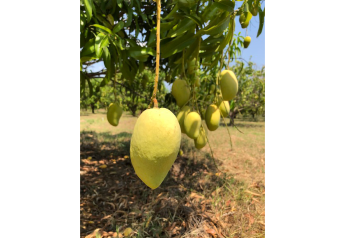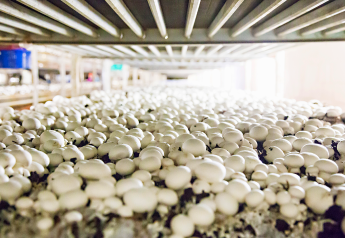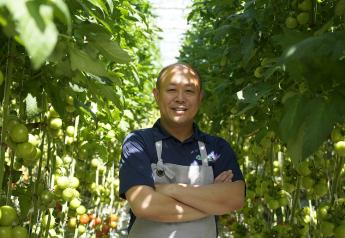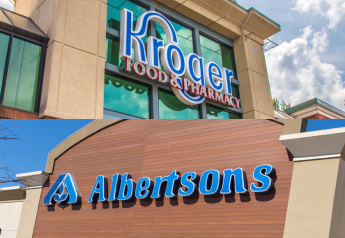Packer interview: Michelle Grainger of the North Carolina SweetPotato Commission
Packer Interview Michelle NC Sweetpotatoes
With deep roots in the state, a lifetime of exposure to agriculture and several years of direct professional experience with the state’s growers, Michelle Grainger was a natural fit for the North Carolina SweetPotato Commission when she hired as executive director in August last year. Grainger most recently had served as managing director of the highly popular North Carolina State University Executive Farm Management Program. She also delivered a TEDx talk at the TedxCaryWomen event in December 2019, where she shared her conviction of the importance of agriculture and farmers to national security. The Packer’s Tom Karst visited with Grainger on May 12 about her time so far at the commission, the challenges and opportunities she sees for the state’s sweet potato industry and the 60-year anniversary celebration of the commission this year.
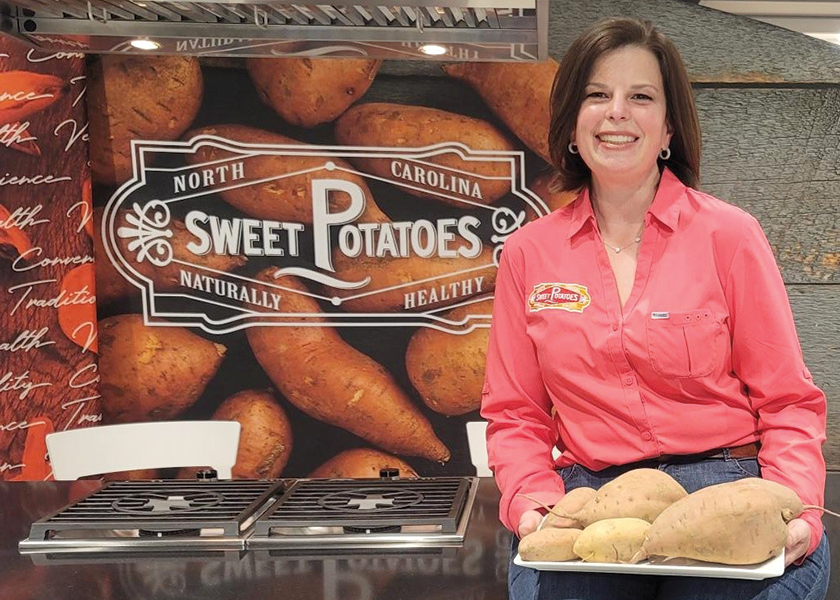
The Packer: I have seen your TED Talk, and your passion for agriculture is impressive. Describe your background and how you came to the commission less than a year ago.
Grainger: My passion for agriculture goes way back. But both my parents were raised on family farms in southeastern North Carolina. So, growing up, visiting grandparents meant going back to the respective family farms. And my father actually started an agriculture chemical company when I was around 8 or 9 years old. And he did so out of our family home. Every meal, every time the phone rang, it was all about agriculture and business. I learned truly firsthand just how integrated and how important agriculture is to all of us, whether we are employed in it or not. If it weren’t for agriculture, we would not have what we have as a state, much less as a country. And I learned that firsthand, and then having the great pleasure and honor of working at NC State as a member of the faculty and staff for 20 years. Of course, as a land grant institution that was founded on agriculture and engineering, I saw even more so how connected we all are to agriculture and how dependent we are (on) agriculture. Working in the space of innovation, which is what I was doing at the university, really allowed me to tie together those passions and intellectual interests and a commitment for the state, and the country as well, in helping advocate and educate the regular consumer who may not have had the opportunity to have the exposures that I’ve had.
The Packer: What were some of the projects you worked on at North Carolina State?
Grainger: I had two primary projects by the time I left (the) university to come to the commission, and they both were full time and kept me on my toes. One was an international research center that looked at innovation management,
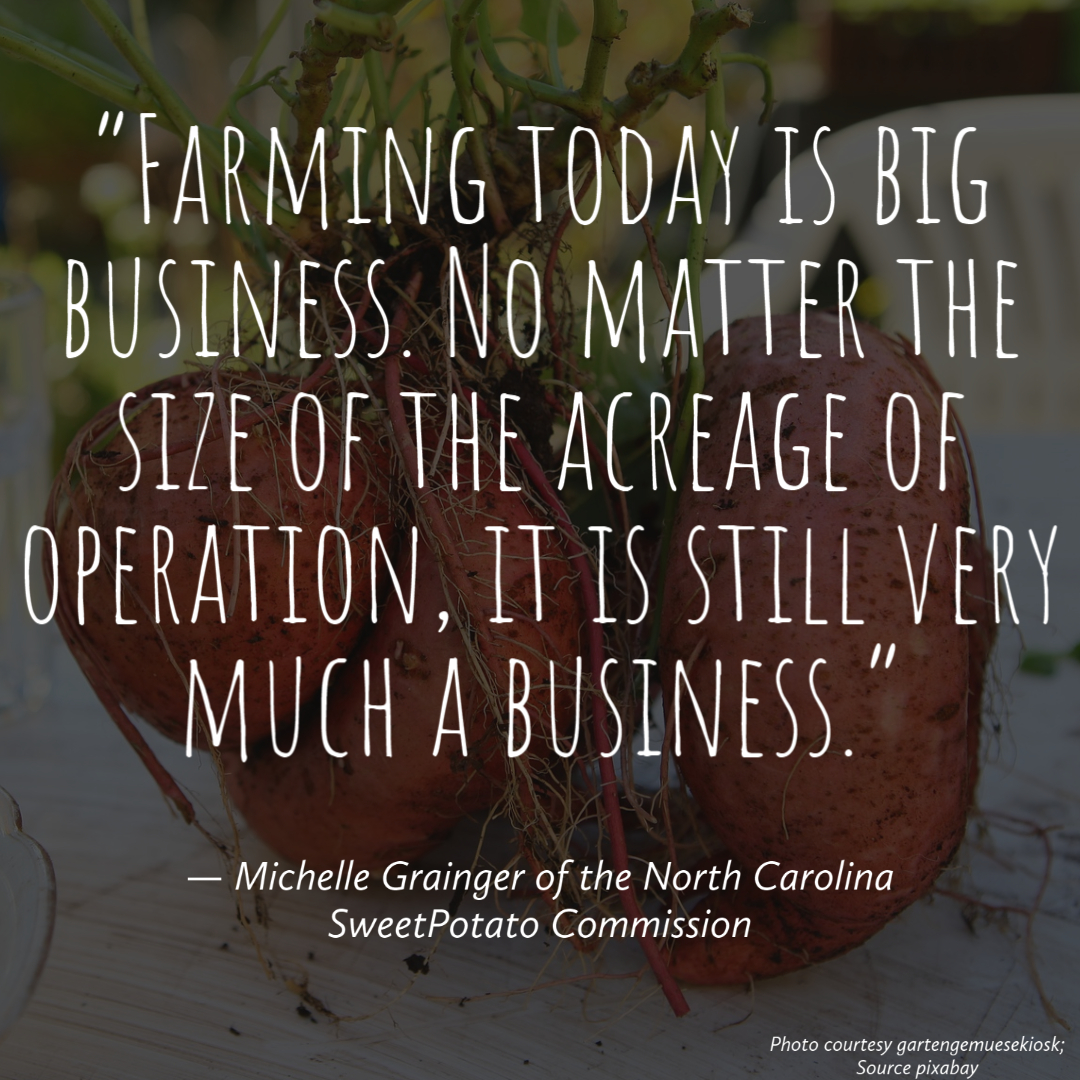 and specifically how to help organizations grow their top line, utilizing innovation practices. The other project that I was involved in is a program called the Executive Farm Management Program, which was an executive education program that was created specifically for the modern farmer across the Southeast to acquire business skills and an acumen that they may not have been naturally exposed to in their fields of study, but they definitely are forced to understand the ins and outs of how it works. Farming today is big business. No matter the size of the acreage of operation, it is still very much a business. And if you are in specialty crops, you have even more business (challenges) because you have labor that you must consider in addition to all the other input costs and pressures. And so this Executive Farm Management Program was very exciting for me because it allowed me to really pull together the strategy and innovation tools that I (was) working on and convey them to pretty darn impressive producers across the Southeast in all different commodity representations and help them grow and change their businesses along the way.
and specifically how to help organizations grow their top line, utilizing innovation practices. The other project that I was involved in is a program called the Executive Farm Management Program, which was an executive education program that was created specifically for the modern farmer across the Southeast to acquire business skills and an acumen that they may not have been naturally exposed to in their fields of study, but they definitely are forced to understand the ins and outs of how it works. Farming today is big business. No matter the size of the acreage of operation, it is still very much a business. And if you are in specialty crops, you have even more business (challenges) because you have labor that you must consider in addition to all the other input costs and pressures. And so this Executive Farm Management Program was very exciting for me because it allowed me to really pull together the strategy and innovation tools that I (was) working on and convey them to pretty darn impressive producers across the Southeast in all different commodity representations and help them grow and change their businesses along the way.
The Packer: That’s very fascinating. I’m sure all the North Carolina sweet potato industry was excited to see you and kind of imagine you in your role at the commission. What was that process like as you decided to go to the commission?
Grainger: I do think that there’s a definite connection as to how all of that came into play. And because the program was started as a pilot in 2017, with a focus specifically on tobacco and sweet potato producers of North Carolina only, before we expanded to the Southeast, I had the opportunity to meet a lot of our sweet potato producers and get to know them.
And then as we expanded across the Southeast, and the program continued, those original alumni of that pilot class made fantastic referrals to their colleagues. When it was all said and done, I had had the real honor of meeting so many of our great producers here in North Carolina. And when the position became available, they reached out to me. I can’t think of a more humbling and honorable position to be in, and I was truly touched, particularly because I do have such a passion for this industry as a whole, and to be recognized by individuals who wanted me to help lead them specifically, was a real ego booster. And then when they actually selected me, I couldn’t believe my good fortune. I tease people all the time (that) I just pray they never come and take my keys, because I’m loving it. I’m loving every bit of it.
The Packer: Of course, you came into the role during the pandemic. And it’s been such a year-plus of having the pandemic hanging over everybody’s heads. But what is it been like for you since you’ve been at the commission? And have you enjoyed what you’ve been able to do, even though somewhat limited with the pandemic?
Grainger: It’s quite something to change careers so radically, and to do so during a global pandemic. And when you change careers and go into a field, (where) harvest is such a big part of that field, and you do your career change at the start of harvest. So, when I came in August, it was wild. And it had nothing to do with anybody not successfully representing their own operation or the industry as a whole, it was just the nature of where we were, and I hit the ground running and I have been running ever since — only because I’m truly so excited, and I have such a hunger for knowledge of learning to make sure that I represent our growers, our packers, our shippers to the fullest of my capabilities. And there are many nuances of this very intricate industry that I think a lot of people don’t realize. I know I certainly didn’t until I was sitting in this seat. And it has enabled me to ask lots of questions. I’ve done so via Zoom meetings, lots and lots of Zoom meetings, just so I can meet folks. But our farmers have been very gracious to allow me to come and visit with many of them at their operations, respecting social distancing and safety, but allowing me to meet them in person, and more importantly, to see their operation firsthand. And for them to share with me what they hope that the industry can do in the future, and what they would very much like to see for me in my role.
That’s been quite helpful, and it has helped my learning curve significantly.



